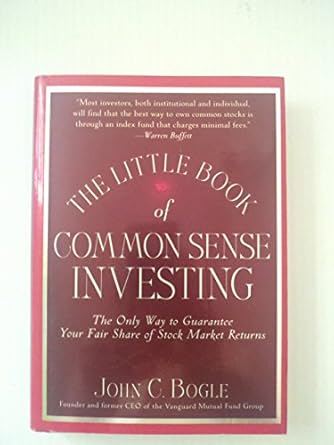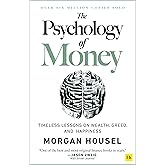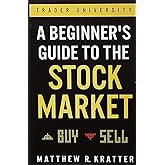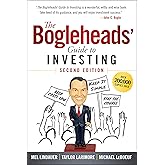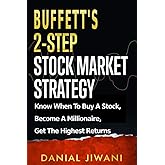
Amazon Prime Free Trial
FREE Delivery is available to Prime members. To join, select "Try Amazon Prime and start saving today with FREE Delivery" below the Add to Cart button and confirm your Prime free trial.
Amazon Prime members enjoy:- Cardmembers earn 5% Back at Amazon.com with a Prime Credit Card.
- Unlimited FREE Prime delivery
- Streaming of thousands of movies and TV shows with limited ads on Prime Video.
- A Kindle book to borrow for free each month - with no due dates
- Listen to over 2 million songs and hundreds of playlists
Important: Your credit card will NOT be charged when you start your free trial or if you cancel during the trial period. If you're happy with Amazon Prime, do nothing. At the end of the free trial, your membership will automatically upgrade to a monthly membership.
Buy new:
$24.51$24.51
Ships from: Amazon Sold by: CM Products LLC
Save with Used - Good
$8.78$8.78
Ships from: Amazon Sold by: ZBK Wholesale

Download the free Kindle app and start reading Kindle books instantly on your smartphone, tablet, or computer - no Kindle device required.
Read instantly on your browser with Kindle for Web.
Using your mobile phone camera - scan the code below and download the Kindle app.



 Audible sample
Audible sample The Little Book of Common Sense Investing: The Only Way to Guarantee Your Fair Share of Stock Market Returns Hardcover – January 1, 2007
There is a newer edition of this item:
Purchase options and add-ons
“There are a few investment managers, of course, who are very good – though in the short run, it’s difficult to determine whether a great record is due to luck or talent. Most advisors, however, are far better at generating high fees than they are at generating high returns. In truth, their core competence is salesmanship. Rather than listen to their siren songs, investors – large and small – should instead read Jack Bogle’s The Little Book of Common Sense Investing.” – Warren Buffett, Chairman of Berkshire Hathaway, 2014 Annual Shareholder Letter.
Investing is all about common sense. Owning a diversified portfolio of stocks and holding it for the long term is a winner’s game. Trying to beat the stock market is theoretically a zero-sum game (for every winner, there must be a loser), but after the substantial costs of investing are deducted, it becomes a loser’s game. Common sense tells us—and history confirms—that the simplest and most efficient investment strategy is to buy and hold all of the nation’s publicly held businesses at very low cost. The classic index fund that owns this market portfolio is the only investment that guarantees you with your fair share of stock market returns.To learn how to make index investing work for you, there’s no better mentor than legendary mutual fund industry veteran John C. Bogle. Over the course of his long career, Bogle—founder of the Vanguard Group and creator of the world’s first index mutual fund—has relied primarily on index investing to help Vanguard’s clients build substantial wealth. Now, with The Little Book of Common Sense Investing, he wants to help you do the same.
Filled with in-depth insights and practical advice, The Little Book of Common Sense Investing will show you how to incorporate this proven investment strategy into your portfolio. It will also change the very way you think about investing. Successful investing is not easy. (It requires discipline and patience.) But it is simple. For it’s all about common sense.
With The Little Book of Common Sense Investing as your guide, you’ll discover how to make investing a winner’s game:
- Why business reality—dividend yields and earnings growth—is more important than market expectations
- How to overcome the powerful impact of investment costs, taxes, and inflation
- How the magic of compounding returns is overwhelmed by the tyranny of compounding costs
- What expert investors and brilliant academics—from Warren Buffett and Benjamin Graham to Paul Samuelson and Burton Malkiel—have to say about index investing
- And much more
You’ll also find warnings about investment fads and fashions, including the recent stampede into exchange traded funds and the rise of indexing gimmickry. The real formula for investment success is to own the entire market, while significantly minimizing the costs of financial intermediation. That’s what index investing is all about. And that’s what this book is all about.
- Print length216 pages
- LanguageEnglish
- PublisherJohn Wiley & Sons Inc
- Publication dateJanuary 1, 2007
- Dimensions6.25 x 0.75 x 7.5 inches
- ISBN-100470102101
- ISBN-13978-0470102107
Book recommendations, author interviews, editors' picks, and more. Read it now.
Frequently bought together
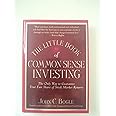
Customers who viewed this item also viewed
 The expectations market is about speculation. The real market is about investing. The stock market, then, is a giant distraction to the business of investing.Highlighted by 3,467 Kindle readers
The expectations market is about speculation. The real market is about investing. The stock market, then, is a giant distraction to the business of investing.Highlighted by 3,467 Kindle readers The message is clear: In the long run, stock returns depend almost entirely on the reality of the investment returns earned by our corporations.Highlighted by 3,051 Kindle readers
The message is clear: In the long run, stock returns depend almost entirely on the reality of the investment returns earned by our corporations.Highlighted by 3,051 Kindle readers Where returns are concerned, time is your friend. But where costs are concerned, time is your enemy.Highlighted by 2,647 Kindle readers
Where returns are concerned, time is your friend. But where costs are concerned, time is your enemy.Highlighted by 2,647 Kindle readers Warren Buffett puts the moral of his story this way: For investors as a whole, returns decrease as motion increases.Highlighted by 2,582 Kindle readers
Warren Buffett puts the moral of his story this way: For investors as a whole, returns decrease as motion increases.Highlighted by 2,582 Kindle readers The true investor . . . will do better if he forgets about the stock market and pays attention to his dividend returns and to the operating results of his companies.Highlighted by 2,175 Kindle readers
The true investor . . . will do better if he forgets about the stock market and pays attention to his dividend returns and to the operating results of his companies.Highlighted by 2,175 Kindle readers
Editorial Reviews
Review
"It's hard to argue with the eloquent logic of John C. Bogle's latest ode to index funds…Bogle's 'Little Book' offers much exemplary advice." (Bloomberg News, April 2007)
Among monetary gurus and wise men, John Bogle is a singular case. As the founder of the highly regarded Vanguard Group, he is revered for the company's commitment to providing value to its clients as well as profits to its investors. He even has his own group of fans, called "Bogleheads," who cling to every utterance and pronouncement from the great man.
In this latest entry in the Little Book series, Bogle's gentle prose contains idiot-proof advice for investors at all levels. He punctures the myth of the superiority of mutual funds and instead declares that by using a bit of common sense, low-cost index funds are the way to go for most modest stock investors. He's also wary of the ways of Wall Street and cautions investors to steer clear of its institutional con men and cautions against excessive fees and taxes that invariably eat up profits.
It's not very glamorous or exciting advice, but that's also his point: Slow and steady wins the race. (Miami Herald, April 9, 2007)
"genuinely provides investors with the ideal strategy for making the most of stock-market investing" (Motley Fool's UK website, March 8, 2007)
"It's an easy read that will, I suspect, quickly join Burton Malkiel's A Random Walk Down Wall Streetand Charles Ellis's Winning the Loser's Gameas one of the indexing crowd's favorite books."—Jonathan Clements (Wall Street Journal)
"It's hard to argue with the eloquent logic of John C. Bogle's latest ode to index funds." (Bloomberg Terminal, March 8, 2007).
"provides an opportunity to reflect on a remarkable career and legacy." (Financial Times, 19th March 2007)
"…it is John Bogle's hymn to index-tracking investment, and a fascinating read it is too." (Daily Telegraph, March 2007)
"Those who doubt my reasoning should read the Little Book of Common Sense Investing by John Bogle." (FT Adviser, 24th April 2007)
"…particularly interesting…goes some way towards discrediting the stockpicking virtues taught to me in my time as a financial journalist." (Fund Strategy, 7th May 2007)
"…wittily written, pocket-sized guide…If you want to learn how to avoid the unpredictabilities of the stock market and the fees of middle men, then this book is well worth a read." (Pensions Age, May 2007)
" ... For the individual investor, it presents a solid game plan for growing funds over the long haul." (Directorship, July 2007)
"... read Bogle's new Little Book of Common Sense Investingand you'll see how easy it is to beat the Alpha Hunters at their own game!" (MarketWatch, July 2007)
‘The one big thing that Bogle knows -- and explains so well in this slender volume -- is that buying and holding a broad benchmark of stocks while keeping fees to a minimum leads to higher long-term returns than constantly trading in a vain attempt to beat the market. Common sense? Yes. But radical too, as the entire investing establishment is designed to get investors to do the exact opposite.” (CNNMoney)
"Business books are often written by show-offs who want you to know all about their knowledge of the Greek tragedies and dark-coloured birds. So it was nice to get hold of the simply written Little Book of Common Sense Investing…Its author, John Bogle, in no simpleton. He built Vanguard into a huge fund manager...He is synonymous with index funds in the US. Vanguard's S&P 500 tracker is by far the world's largest mutual fund."—Stephen Cranston, Investor's Notebook (Jan 23, 2013)
From the Inside Flap
To learn how to make index investing work for you, there's no better mentor than legendary mutual fund industry veteran John C. Bogle. Over the course of his long career, Bogle—founder of the Vanguard Group and creator of the world's first index mutual fund—has relied primarily on index investing to help Vanguard's clients build substantial wealth. Now, with The Little Book of Common Sense Investing, he wants to help you do the same.
Filled with in-depth insights and practical advice, The Little Book of Common Sense Investing will show you how to incorporate this proven investment strategy into your portfolio. It will also change the very way you think about investing. Successful investing is not easy—it requires discipline and patience. But it is simple, for it's all about common sense.
With The Little Book of Common Sense Investing as your guide, you'll discover how to make investing a winner's game:
- Why business reality—dividend yields and earnings growth—is more important than market expectations
- How to overcome the powerful impact of investment costs, taxes, and inflation
- How the magic of compounding returns is overwhelmed by the tyranny of compounding costs
- What expert investors and brilliant academics—from Warren Buffett and Benjamin Graham to Paul Samuelson and Burton Malkiel—have to say about index investing
- And much more
You'll also find warnings about investment fads and fashions, including the recent stampede into exchange traded funds and the rise of indexing gimmickry. The real formula for investment success is to own the entire market, while significantly minimizing the costs of financial intermediation. That's what index investing is all about. And that's what this book is all about.
From the Back Cover
To learn how to make index investing work for you, there's no better mentor than legendary mutual fund industry veteran John C. Bogle. Over the course of his long career, Bogle—founder of the Vanguard Group and creator of the world's first index mutual fund—has relied primarily on index investing to help Vanguard's clients build substantial wealth. Now, with The Little Book of Common Sense Investing, he wants to help you do the same.
Filled with in-depth insights and practical advice, The Little Book of Common Sense Investing will show you how to incorporate this proven investment strategy into your portfolio. It will also change the very way you think about investing. Successful investing is not easy—it requires discipline and patience. But it is simple, for it's all about common sense.
With The Little Book of Common Sense Investing as your guide, you'll discover how to make investing a winner's game:
- Why business reality—dividend yields and earnings growth—is more important than market expectations
- How to overcome the powerful impact of investment costs, taxes, and inflation
- How the magic of compounding returns is overwhelmed by the tyranny of compounding costs
- What expert investors and brilliant academics—from Warren Buffett and Benjamin Graham to Paul Samuelson and Burton Malkiel—have to say about index investing
- And much more
You'll also find warnings about investment fads and fashions, including the recent stampede into exchange traded funds and the rise of indexing gimmickry. The real formula for investment success is to own the entire market, while significantly minimizing the costs of financial intermediation. That's what index investing is all about. And that's what this book is all about.
About the Author
Product details
- Publisher : John Wiley & Sons Inc (January 1, 2007)
- Language : English
- Hardcover : 216 pages
- ISBN-10 : 0470102101
- ISBN-13 : 978-0470102107
- Item Weight : 9.6 ounces
- Dimensions : 6.25 x 0.75 x 7.5 inches
- Best Sellers Rank: #360,899 in Books (See Top 100 in Books)
- #80 in Mutual Funds Investing (Books)
- #564 in Stock Market Investing (Books)
- #1,600 in Finance (Books)
- Customer Reviews:
About the author

John C. Bogle (Bryn Mawr, PA) is Founder of The Vanguard Group, Inc., and President of the Bogle Financial Markets Research Center. He created Vanguard in 1974 and served as Chairman and Chief Executive Officer until 1996 and Senior Chairman until 2000. He had been associated with a predecessor company since 1951, immediately following his graduation from Princeton University, magna cum laude in Economics. The Vanguard Group is one of the two largest mutual fund organizations in the world. Headquartered in Malvern, Pennsylvania, Vanguard comprises more than 100 mutual funds with current assets totaling about $742 billion. Vanguard 500 Index Fund, the largest fund in the group, was founded by Mr. Bogle in 1975. In 2004, TIME magazine named Mr. Bogle as one of the world's 100 most powerful and influential people, and Institutional Investor presented him with its Lifetime Achievement Award. In 1999, FORTUNE designated him as one of the investment industry's four "Giants of the 20th Century." In the same year, he received the Woodrow Wilson Award from Princeton University for distinguished achievement in the nation's service."
Customer reviews
Customer Reviews, including Product Star Ratings help customers to learn more about the product and decide whether it is the right product for them.
To calculate the overall star rating and percentage breakdown by star, we don’t use a simple average. Instead, our system considers things like how recent a review is and if the reviewer bought the item on Amazon. It also analyzed reviews to verify trustworthiness.
Learn more how customers reviews work on AmazonCustomers say
Customers find the book provides good investment knowledge and intellectual wisdom. They describe it as an easy, practical read for anyone into investing. The book is well-written and simple to understand. Readers appreciate the solid evidence and facts supporting the author's assertions. They also mention that the book provides a great place to start and timeless insights on assembling portfolios. However, some customers feel the content is repetitive.
AI-generated from the text of customer reviews
Customers find the book helpful for learning about index funds. They find it informative and useful for beginners. The advice is solid, but not considered complete.
"...It's been an incredible tool in this regard. And the red cover!! It's excellent!! It's hard to lose the book...." Read more
"...someone who is more verbose than I, but the book is well written, informative, and builds the author's case in a logical, stepwise manner...." Read more
"A wealth of knowledge that helps filter out the noise to hear the music...." Read more
"...It has solid advice, but it should not be considered the end-all of investing, and some of the advice and quotations should be taken with a grain of..." Read more
Customers find the book easy to read and useful for investing. They find it interesting and well worth the time spent. The book is practical and concise, providing a different perspective on stocks. Readers appreciate that it's not overly technical or repetitive.
"...It's been an incredible tool in this regard. And the red cover!! It's excellent!! It's hard to lose the book...." Read more
"...Overall, however, it's a great and insightful read. I plan to buy a couple extra copies to give to my family. Pros:..." Read more
"Great book" Read more
"...uninitiated, The Little Book of Common Sense Investing serves as a good resource to explain the how's and why's of index funds...." Read more
Customers find the book easy to read and understand. They describe it as a simple, well-written book that provides a clear explanation of investing in a digestible way. The writing style is articulate and comfortable, making it an accessible summary for beginners.
"...It's excellent!! It's hard to lose the book. It's so visible and easy to point at whenever questions about investing arise, I just point at the book...." Read more
"...is written by someone who is more verbose than I, but the book is well written, informative, and builds the author's case in a logical, stepwise..." Read more
"...So, did I like the book? Yep.. it was pretty good. Bogle writes very clearly and visibly tries to keep his discussions simple and to the point, so..." Read more
"...This "common sense investing" book was easy to read and easy to understand...." Read more
Customers find the book's advice credible. They find it convincing with clear truths and a winning strategy that anyone can follow. The author provides solid evidence, facts, and data to support his assertions. The book is backed by professional testimony in an informative, easy-to-read way.
"...Lots of great facts and studies noted in the book. Tons of testimonies to backup data. I’m more confident about investing after reading this book." Read more
"...The information is useful, pertinent, and supported by evidence...." Read more
"Mr. Bogle makes a solid argument repeatedly, by approaching the same question from multiple directions and supporting it with unimpeachable numbers...." Read more
"Concise and easy to read, yet packed with important insight. Two important points to take away from the book:..." Read more
Customers appreciate the book's diversification. They find it provides a comprehensive overview of the market and the reasons for picking individual stocks, with charts and tables. The book also offers examples of how simple formulas have performed over time.
"...Pros: + quick and easy read + lots of examples and diagrams to demonstrate how high expense ratios and other hidden costs can devastate a..." Read more
"...The logic of his index fund was to invest in a large number of stocks, all the stocks comprising the S&P 500, to make money from the combination of..." Read more
"...into one low cost mutual fund company where asset class diversification is available,where expenses are low, turnover is low and I can see and..." Read more
"...Diversify, set and forget. His thesis is simplicity itself and proved again and again by the simplicity of undeniable mathematics...." Read more
Customers find the book a good starting point for investing. They say it's never too early to start, and the book provides a quick and simple introduction to index investing. Readers appreciate Bogle's timeless insights on assembling portfolios, building them efficiently, and customizing them for retirement.
"...Pros: + quick and easy read..." Read more
"...Bogle providing timeless insights on assembling portfolios, building them efficiently, customizing them for retirement, and a myriad other ideas..." Read more
"...Simplify your portfolio. All you really need are a few passively managed index funds...." Read more
"...Simple, easy to understand, not easy to follow when you live through a deflation of the Dow, but a great message to live by." Read more
Customers have different views on the book. Some find it timeless and modern, while others feel it's outdated today.
"...taught me the the basics of the stock market, the statistics, the history and best way for beginners to get into investing is through the S&P 500." Read more
"...Just absolutely amazing what I have learned in this “little book”. A classic." Read more
"I think the book is worth reading but is outdated and could be much more concise...." Read more
"This book was an easy read with practical examples and historical data...." Read more
Customers find the book repetitive with many run-on sentences and ramblings. They find it boring, dry, and confusing from the start. The title misleads them and they feel confused about terminology from the start.
"...of information but in my opinion, it had many run-on sentences and ramblings...." Read more
"...However, the book is boring, extremely repetitious, and could have been cut back by at least a third...." Read more
"...I strongly feel the title misleads...." Read more
"I started reading and was confused from the start at the terminology. It’s a Common Sense Investing not Investing for Dummies book…I’m an idiot." Read more
Reviews with images
Must Read For People Thinking About Investing
Top reviews from the United States
There was a problem filtering reviews right now. Please try again later.
- Reviewed in the United States on March 9, 2024My spouse was really starting to ask me a few too many questions about investing in the stock market ever since the pandemic started. It's actually caused me to seek help from a psychologist. Finally, I decided to just buy this book for my wife's birthday. She was so happy to get it. However, she wasn't reading it... At all! So my daughter picked it up one day and wrapped it up again and gave it to her boyfriend for his birthday! So I purchased another copy for my spouse, and left it near the dining room table. Now every time my wife asks me an investment question, I point to the book. It's been an incredible tool in this regard. And the red cover!! It's excellent!! It's hard to lose the book. It's so visible and easy to point at whenever questions about investing arise, I just point at the book. It's been awesome!! And it's mainly about how to avoid fees, value investing through index funds...common sense investing stuff. It's beautiful! And I've heard that my daughter's boyfriend is actually reading the book and is learning a lot and loving it. My psychological issues have disappated and I'm no longer needing talk therapy. I love this book! Buy the book! It's brilliant! Especially for people who refuse to read and just ask annoying questions, or a person getting into investing for the first time.
- Reviewed in the United States on July 10, 2016ANYONE who invests really NEEDS to read this book! I lost a BUNDLE in the past year in the market. I began to think my investment advisory firm was NOT taking the best care of me, but the WERE GETTING PAID IN FULL while losing me a quarter million bucks!
And I started researching, looking for "A Better Way." I worked hard, put in many long hours, went through every resource available to me...
And then I found... This little book.
From it I've learned my advisors could never do as good a job for me as I CAN do for myself! This little book has led me to start moving my assets out of "helpers" hands, and finally reap the FULL rewards my invested money generates instead of letting my "helpers" continue helping themselves to MY MONEY!!!
The book is written by someone who is more verbose than I, but the book is well written, informative, and builds the author's case in a logical, stepwise manner. It shows you how you've been wrong, paying high fees unnecessarily. More, it shows you the tool available to everyone that allows much faster wealth building with passive investing than is possible with any active investing.
Yep, if you've got money TO invest (old farts like me do) you really need to read this book. I guarantee you will be helped by it. Especially considering we really can't count on Social Security for our old age. Social Security was never meant to be more than a source of PARTIAL suport! You'd jolly well better have your own money invested and generating enough additional cash to make your life comfortable in your old age, because nobody is going to do it for you! If you think Uncle Sugar is going to keep your comfortable in your older years, BOY are you in for a shock!
Buy the book. Read it. Learn how to be more financially secure, sooner. It's in the book!
- Reviewed in the United States on October 7, 2024A wealth of knowledge that helps filter out the noise to hear the music. Wish my 401k account manager would have communicated the difference between mutual funds and low cost Index Funds. After reading, I immediately and confidently reallocated the funds in my 401k from the high cost mutual funds that were the default.
- Reviewed in the United States on June 27, 2007John Bogle created the world's first index fund in 1975. In this book, he describes why you should make index funds the core of your investment portfolio.
Bogle starts off with introducing index funds through a parable that describes how middle-man costs in finance eat away at investors' profits. He discusses why speculation doesn't work and why business reality (in his definition, divident yields plus earnings growth) is more important that market expectation (changes in P/E based on what investors are willing to pay for various equities).
Bogle spends a few chapters discussing various problems with regular actively managed mutual funds, covering issues with performance (he asserts that less than 1% of all mutual funds were able to beat the market consistently over the past half century), various costs (expense ratios, sales charges, advertising fees, turnover costs, tax implications), poor market timing, and finally the difficulty of choosing a mutual fund (he states that there's no good way to pick a fund, since we can't foretell the future, and past performance is not an indicator of what's to come). He brings the reader to the "common sense" conclusion that index funds, in their pure simplicity, are the logical choice for any investor, as they provide the diversified return of the entire market with miniscule fees and minimal effort.
The last few chapters cover bond funds, ETFs, and a few pages of investment advice - which boils down to keeping at least 50% (if not all) of your money in broad-market index funds. Interestingly, Bogle spends a chapter discussing what Benjamin Graham would have thought about index funds, citing various quotes from Graham's "The Intelligent Investor" and certain blurbs from Warren Buffet. He, of course, concludes that Graham would have praised index funds.
So, did I like the book? Yep.. it was pretty good. Bogle writes very clearly and visibly tries to keep his discussions simple and to the point, so as to appeal to the widest possible audience. And with good reason! Bogle's advice is very applicable to the many individual investors today - index funds are a great low-cost and low-maintenance way to get your share (or all, as Bogle suggests) of the market's return.
To convince the reader, Bogle uses many diagrams to illustrate returns of various mutual funds vs. index funds, and to compare what your original investment would look like after a certain time - based on how it was invested. I found an error in one of the diagrams - exhibit 10.1 (and the text around it) on page 108 lists the average fund advisor return as $188,500 instead of $88,500. Not a big deal, but it slightly undermines the point he's trying to make on that page. Overall, I feel that Bogle's diagrams illustrate some good harsh realities - he clearly illustrates how a few percentage points (i.e. the costs associated with actively managed mutual funds) can eat away enormous chunks of your money over time.
To bring more authority into his argument, Bogle provides a "Don't Take My Word for It" section at the end of each chapter, where he quotes various respected investors and professors to support the points he made in the chapter. I enjoyed this, but it's important to be aware that some quotes can often be interpreted very differently outside a certain context.
One very obvious issue with this book is that Bogle is selling his own product - Vanguard's funds. He doesn't try to hide this in any way. He uses Vanguard's funds in nearly all examples, and he often hints how his "world's first index fund" is the greatest thing since sliced bread. You can't really blame the man - his contribution to the world of finance and investing is enormous, and he damn well should be proud of his accomplishments. So I think it's okay to cut Bogle some slack in this area.
The book is short - about 215 small-size pages. You can probably sit down and read it in a few solid hours. It also goes pretty quickly, as the material is not dense and easy to follow. However, some may argue that the book is too long for what it is trying to demonstrate. True, Bogle's advice really can be summed in just a few pages - index funds are a great choice for the average investor. But I have to say that I enjoyed reading the examples and history that he provides.
In conclusion, I recommend this book to any individual investor. While Bogle's advice is in no way eye-opening or revolutionary (chances are, you already know that index funds are a very low-cost and low-maintenance way to diversify), it is good to remind yourself the reasons why you should stay away from most actively managed mutual funds. As Bogle describes, this is all common sense - but we're often blinded by flashy advertisements, hot market sectors, and seemingly-reachable dollar signs. This book is a good reality check for the average individual investors.
I wish I could give this book 4.5 stars - but since I can't due to Amazon's rating system, I feel that it is more of a 4-star book rather than a 5-star one. It has solid advice, but it should not be considered the end-all of investing, and some of the advice and quotations should be taken with a grain of salt. Overall, however, it's a great and insightful read. I plan to buy a couple extra copies to give to my family.
Pros:
+ quick and easy read
+ lots of examples and diagrams to demonstrate how high expense ratios and other hidden costs can devastate a portfolio's return
+ some good basic investment advice: buy and hold, avoid emotional decisions, don't be enticed by "new hot trends" (as by the time you find out about them, prices are already inflated), diversify into the whole market, look into costs before buying, etc.
+ great format - short chapters, useful data, neat quotation sections at the end of each chapter
Cons:
- some may be turned off by Bogle's plugs for Vanguard funds (this didn't really bother me)
- may seem lengthy to drive one main point home (but keep in mind that there are quite a few good tid-bits scattered throughout the book)
- take some citations with a grain of salt
- Reviewed in the United States on November 26, 2024If you are a beginner, and you don't want to spend a lot of time figuring out a safe way to invest your money, buy this book.
Top reviews from other countries
 NessReviewed in Canada on December 3, 2024
NessReviewed in Canada on December 3, 20245.0 out of 5 stars Great book to start Investing.
It is a great book to start Investing, using common language and not boring stuff.
-
 Rafael ArenasReviewed in Mexico on April 5, 2024
Rafael ArenasReviewed in Mexico on April 5, 20245.0 out of 5 stars Un libro excelente.
Siempre había querido este libro, te enseña bastante sobre la inversión al largo plazo y te explica lo mucho que vale la pena. Con este libro maximizarás la rentabilidad de tus inversiones.
 Siempre había querido este libro, te enseña bastante sobre la inversión al largo plazo y te explica lo mucho que vale la pena. Con este libro maximizarás la rentabilidad de tus inversiones.5.0 out of 5 stars Un libro excelente.
Siempre había querido este libro, te enseña bastante sobre la inversión al largo plazo y te explica lo mucho que vale la pena. Con este libro maximizarás la rentabilidad de tus inversiones.5.0 out of 5 stars Un libro excelente. Rafael Arenas
Rafael Arenas
Reviewed in Mexico on April 5, 2024
Images in this review
 Tenzin Choksang LHABUReviewed in Germany on November 5, 2024
Tenzin Choksang LHABUReviewed in Germany on November 5, 20245.0 out of 5 stars Super
I wish I could read this book 8 year before anyway it’s not too late I am 30 years
 ginesReviewed in Spain on October 28, 2024
ginesReviewed in Spain on October 28, 20245.0 out of 5 stars Very good read
Very good read, I liked it and i recommend it to begginers that want to start in the business of investing without getting to high risks
 AlexReviewed in Belgium on April 5, 2024
AlexReviewed in Belgium on April 5, 20244.0 out of 5 stars Très bien



